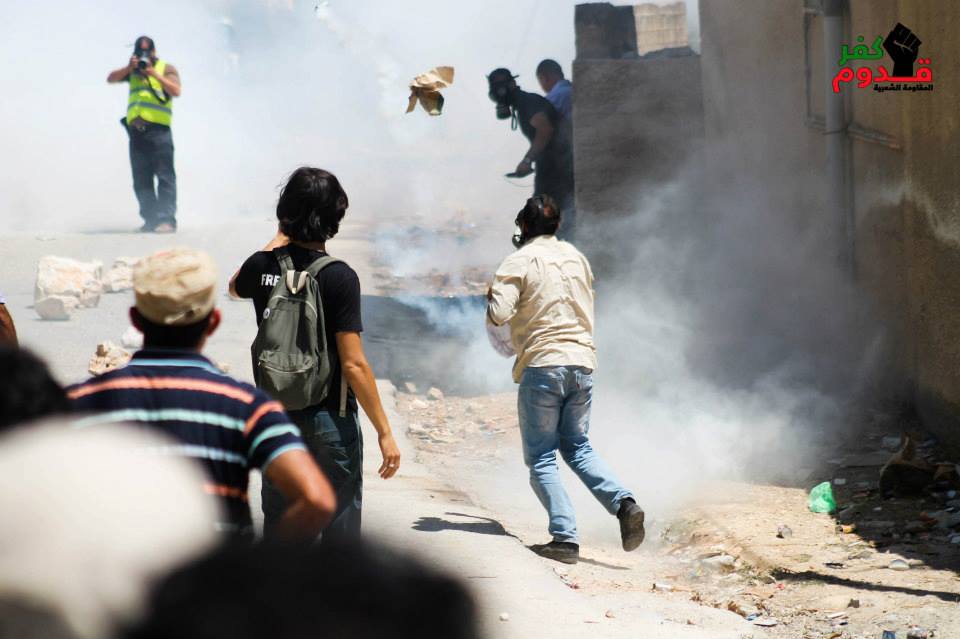Tag: Tear-Gas Canister
-
Welcome to Palestine: tear gas and coffee
10th August 2013 | International Solidarity Movement, Anna, Nablus Team | Kafr Qaddum, Occupied Palestine I came to Palestine last Tuesday and joined the weekly protest held on Friday the 8th of August in Kafr Qaddum. The demonstration represented non-violent resistance against the land grab and for the freedom of movement in the village. Kafr…
-
Photo essay: Israeli army incursion through Apartheid Wall in Ni’lin
10th August 2013 | International Solidarity Movement, Ramallah Team | Ni’lin, Occupied Palestine Yesterday at around 1pm, Palestinians together with Israeli and international activists marched through the olive groves towards the annexation wall on Ni’lin’s land. Demonstrators approached the area of the wall chanting slogans against Israel’s apartheid policies and the annexation of land for…



